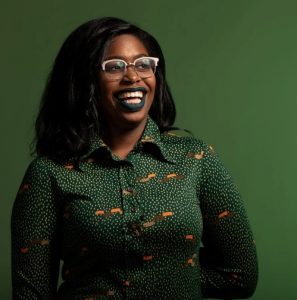Every February, we celebrate Black History Month reflecting on the substantial contributions of our African-American ancestors to several aspects of life, and recognizing our roles in the fight against discrimination based on race. As the celebrations wind down, continue to pay close attention to changing the ‘face’ of academia in society and creating better access to higher education for Black women and girls in the 21st century.
As Black girls grow up and move into higher education, the struggles they face may change, but they are never eliminated. Black women in America and abroad are united by the treatment they receive from people of other races, and they continue to face unique issues in education. Black women are placed at the very bottom of the academic ladder, being more likely to be objectified and dehumanized. We are continually pulled down by the heavyweights of race and gender discrimination, which contributes to our devaluation as humans. Academia has persistently excluded and alienated Black academics at all levels. Whenever we are around others, there is a sense of comparison; “there is always the question of worth and merit” (Fanon, 1952).
Many of us are made to feel inferior or ‘less than’. Our endeavors in the workplace are judged more harshly, meaning we have to put in more work to be seen at the same level as our non-Black colleagues. The pressure we face often causes us to code-switch when amongst colleagues, choosing to forego our natural speech patterns and lingo in an effort to seem more like we belong. We are tasked to go overboard in making our teammates and students feel comfortable, as not to appear too aggressive. There is a mental strain involved in trying to go above and beyond everyone else just to be seen as on par with our peers. Although Black women of all ages have long struggled with unique obstacles because of their race, these negative experiences do not have to continue. There are several solutions that educators and Black women themselves can implement to improve future experiences for women of color.
The solutions to the problems that Black girls and women face in education vary by age. For the younger girl who faces extreme disciplinary policies because of negative stereotypes, we must teach educators to avoid the white ideal of femininity and recognize that there is no feminine personality. Assertiveness and the ability to be self-reliant in Black girls need to be recognized as powerful tools instead of negative ones. There is more than one way to be a Black girl, and educators must see that trying to fit Black girls into a mold is diminishing their educational opportunities. Instead of seeing the independence of Black female students as a negative attribute, see Black girls as leaders and mentors and give them those opportunities to shine in school.
Despite the external obstacles we face as Black girls and Black women, there are steps we can take to counteract them in our lives and the lives of those around us. The marginalization of Black girls and Black women that is perpetuated in academia must be confronted so that Black girls and Black women can occupy the places and positions we have earned. We “owe our group presence in the university system”, and we must represent ourselves, difficult as it is since no one else will do it for us (Wynter, 1994). We must be seen as school teachers, university professors, in school board positions, and in politics. We must BE the change we want to see. We must advocate for ourselves and advocate for others to help each other get into high positions that can make a positive change in race and identity work.
Even though there is ample evidence that we are ostracized by the world, we as Black women can look out for each other. We develop trusting relationships since there is dire importance in “being around other Black women as mentors and guides” to understand ourselves as Black girls, Black women, and Black educators (Dillard, 2016). Schools should create a safe space for Black girls and Black women to succeed. This can be done through the development of programs that support the intersectionality of Black girls and Black women and their ability to lead and their right to have emotions.
Black females need to know they can show up in a school or university, whether as a student or as a teacher, and feel accepted for who they are holistically. Black female intellectuals hold the key in academia that opens the door to real change. We must teach what it means to be Black: both in the then, and the now. We must not allow the negative history taught about Africa to create mental constraints that continue to push us to look at our own people as inferior. We cannot forget who we are or allow ourselves to become alienated from our culture. We can never heal the issues in our system by trying to forget or gloss over the negative events of the past. We need to acknowledge the far-reaching effects the myth of inferiority has had both on Black girls, Black women, and the Black community.
“Intelligence plus character, that is the goal of true education'”
-Dr. Martin Luther King Jr.
References
Dillard, C. (2016). To Address Suffering That the Majority Can’t See: Lessons from Black Women’s Leadership in the Workplace. New Directions for Adult and Continuing Education, 152, 29. https://doi.org/10.1002/ace.20210
Dillard, C. (2016). Towards an Education That (Re)members. Tikkun, 31(4), 50–53.
Fanon, F. (1952). Black skins, white masks. New York, NY: Grove.
Wynter, S. (1994). NHI: No humans involved: A letter to my colleagues. Knowledge on Trial, 1(1), 42-73.
About the Author
 Kenesma John, M. Ed. was born in St. Thomas U.S.V.I. and descended from a Lucian mother and an Anguillan father. She was raised in Houston, Texas, and moved to Florida one year before starting her Ph.D. journey. She is an experienced Teacher with a demonstrated history of working in the primary education industry. She is currently a graduate student at the University of Florida with scholarly interests in Black Immigrants, Black Feminist Thought, and Culturally Responsive Teaching/Learning. Before starting the graduate program, Kenesma self-published her first children’s book, The Newest Addition: A Tale of Siblings, which is available on Amazon in English, Spanish, and French.
Kenesma John, M. Ed. was born in St. Thomas U.S.V.I. and descended from a Lucian mother and an Anguillan father. She was raised in Houston, Texas, and moved to Florida one year before starting her Ph.D. journey. She is an experienced Teacher with a demonstrated history of working in the primary education industry. She is currently a graduate student at the University of Florida with scholarly interests in Black Immigrants, Black Feminist Thought, and Culturally Responsive Teaching/Learning. Before starting the graduate program, Kenesma self-published her first children’s book, The Newest Addition: A Tale of Siblings, which is available on Amazon in English, Spanish, and French.









